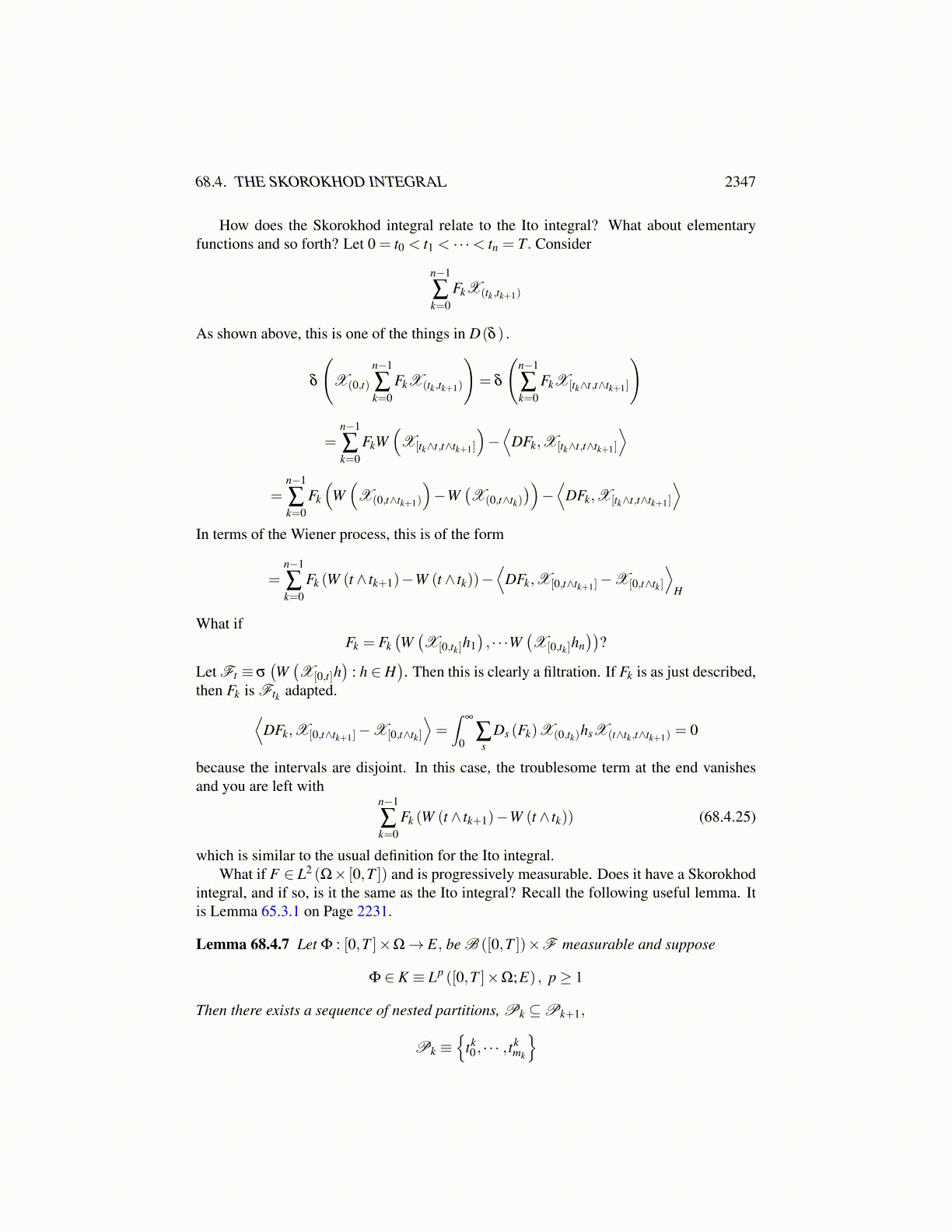
68.4. THE SKOROKHOD INTEGRAL 2347
= E
(∑j,k
∥∥h j∥∥∥hk∥δ
(Fjh j/
∥∥h j∥∥)δ (Fkhk/∥hk∥)
)and doing exactly the same steps but keeping the factor
∥∥h j∥∥∥hk∥ throughout, this yields
E
(m
∑k=1∥hk∥2 ∥Fk∥2
H
)+
m
∑j,k=1
E(∥∥h j
∥∥∥hk∥⟨DFj,hk/∥hk∥
⟩⟨DFk,h j/
∥∥h j∥∥⟩)
= E
(m
∑k=1∥Fkhk∥2
H
)+
m
∑j,k=1
E(⟨
DFj,hk⟩⟨
DFk,h j⟩)
= E
∥∥∥∥∥ m
∑k=1
Fkhk
∥∥∥∥∥2
H
+m
∑j,k=1
E(⟨
DFj,hk⟩⟨
DFk,h j⟩)
It appears from the computations to be correct, but it does not look right. This isbecause the second term is not clearly nonnegative. It is the expectation of the trace of A2
where A is the matrix whose jkth entry is⟨DFj,hk
⟩. One wonders whether the end result is
nonnegative.
68.4.3 The Ito And Skorokhod Integrals
If you let H = L2 (0,∞;U) where U is a separable Hilbert space, and if f ∈D(δ ) , it is verynatural to ask whether f X(0,t) ∈ D(δ ). This is not so. There is a counter example givenin [102]. However, this is true if you change the definition of the integral such that in thedefinition of δ , it is only necessary for
|⟨DF,G⟩| ≤C∥F∥Lp(Ω)
where F is in P . When you see why this is so, it will be clear why it is not so for thedefinition given above.
Lemma 68.4.6 Suppose the definition of the Skorokhod integral δ is changed so that it isonly necessary to have
|⟨DF,G⟩| ≤C∥F∥Lp(Ω)
for all F in P . Then let H ≡ L2 (0,∞;U) or L2 ([0,T ] ;U) where U is a separable realHilbert space. For this modified definition of the integral, if f ∈ D(δ ) , it follows thatf X(0,t) ∈ D(δ ).
Proof: The case L2 (0,∞;U) is considered here. The other case is similar. δ will bedefined on some things in L2
(Ω,L2 (0,∞;U) ,F
)where, as discussed earlier,
F = σ (W (h) : h ∈ H)
Then if you have f ∈ D(δ ) so f ∈ L2(Ω,L2 (0,∞;U)
), does it follow that f X[0,t] ∈ D(δ )
also? Let F be one of those polynomial functions of some W (h) . Assume first that a0, the